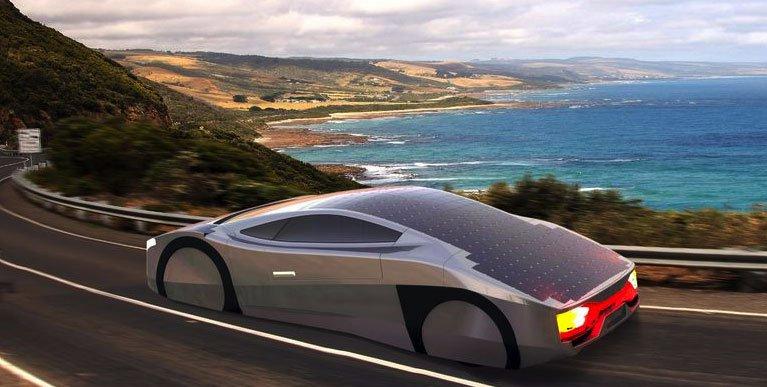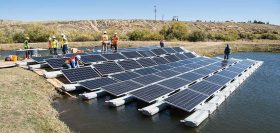Tesla isn’t alone in the electric car business anymore. Every major auto manufacturer as well as tech giants Google and Apple are all getting into the game. That’s good news for solar.
While the auto industry is being rocked by news of a gigantic scandal surrounding Volkswagen’s “clean” diesel technology, the electric vehicle (EV) market is looking more and more like the only way forward for environmentally friendly passenger vehicles. At nearly the same time that the VW story was breaking, another major player is making serious moves toward the development of an electric car. The Wall Street Journal is reporting that “Apple Inc. is accelerating efforts to build an electric car, designating it internally as a “committed project” and setting a target ship date for 2019, according to people familiar with the matter.”
As of this writing, BMW, Chevrolet, Fiat, Ford, Kia, Mercedes, Mitsubishi, Nissan, Smart, Tesla and VW all have pure electric vehicles in production. Apple and Google are still in the R&D phase. What will all of these new EVs mean for the solar industry in the decades to come?
Obviously, from an environmental perspective, electric car charging has to use a renewable source of electric generation in order to make sense. Simply trading consumption of petroleum for electricity from a conventional, coal-fired power plant is swapping one dirty fuel for another. From the standpoint of national energy independence, using domestic fuel sources may be preferable, but when we team electric cars with on-site solar generation, the multiple layers of economic and environmental benefits start to kick in. The price per mile for an electric vehicle is already about one half the price for a gas vehicle. As solar begins to reach grid parity with coal, solar-charged electric vehicles will become the least expensive passenger vehicles to operate, in terms of fuel consumption.
Homes and businesses that already utilize solar can use their existing systems to charge vehicles by simply adding an EV charging station, available for as little as $500 at Home Depot, your local electrical supply house or from EV specialty houses like EV Solutions. Meanwhile, stand-alone solar powered electric charging stations are popping up across the country. Three free solar electric chargers were rolled out in San Francisco earlier this year as part of the “Charge Across Town” demonstration project. In addition, PlugShare and Sungevity teamed up to offer a free Level 2 residential charging station to all rooftop solar panel customers who drive an EV. Eligible customers will receive a 7.2-kW GE WattStation charging station—and free installation—when they opt to add rooftop solar to their homes. The deal yields an average savings up to $2,100. Details about the program are available at the PlugShare website. From the Nashville Airport to a Vermont B&B, solar EV charging stations are making the news.
According to their website, Envision Solar’s patented EV ARC™ (Electric Vehicle Autonomous Renewable Charger) is the world’s only transportable, solar powered EV charging station. A major selling point for the EV ARC™ is that it requires no permits, no civil engineering or planning, no foundations, trenching or electrical connections, making it a turn-key product. Each station will deliver up to 150 e miles every day, while charging up to three electric cars at a time. In addition, the Envision system can be used as backup power storage in the event of a blackout. This type of pre-packaged stand alone system may prove to be a huge new sector for the solar industry.
Is there a chance that we will see on-board solar charging for vehicles in the future? Right now, onboard solar is limited to highly experimental vehicles. Shell Global holds an Eco-Marathon solar car competition in which student teams compete, but in the realm of passenger vehicles, there are very few companies looking at on-board solar. One exception is an Australian company, EVX, which plans to have a road-legal prototype of its IMMORTUS self-powered sportster by the end of 2016.







